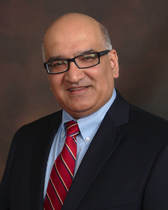|
If you are currently out of a job or looking for a better job, then it’s no secret that you’re frustrated with the interview process. You are not alone. In this blog, I will give you some ideas on how to navigate the interview process by breaking it down into five steps. Getting a good high-paying job comes down to five key questions:
If you don’t have marketable skills, then you must address this quickly since companies want certainty; thus, they are very risk-averse. If you find yourself in this situation, my suggestion is to take a temporary job, consult or do some volunteer work while taking courses to build your marketable skills. Today, you have to be a lifelong learner and keep stacking skills that will make and keep you highly marketable. And the only way to know that you are marketable is by constantly testing the job market. So you have to develop and master your interviewing skill. Briefly, here are the five Interview steps that you typically go through: First Step -- This could occur through social media like LinkedIn, YouTube, blog, resume with a cover letter or some networking contacts. In this step, you are going to be interviewed indirectly. Second Step -- This occurs via phone with an internal recruiter, employee and/or hiring manager. This is a discovery call, so you want to keep this call short between twenty to thirty minutes. It is better to have multiple calls than one long one. Third Step -- This occurs face to face onsite or offsite, and it is going to be detailed since you are going to have to make a go/no-go decision. Fourth Step -- This will be a reference check. You are going to be interviewed indirectly. Fifth Step -- This is Go/No-Go decision step by the company. You are going to be interviewed indirectly. Breaking the interview process into five steps will help you navigate through the process with focus, strategy, and confidence. It will increase your chances of getting a job offer. To interview effectively, you must have consistency during the entire five steps of the interview. And that means that you have to focus on these five key questions:
You will not need to answer all four questions for all the steps, but you do need all of them if you want to land a job offer. All questions that you are asked will fall into these five buckets, so it is important you prepare well by focusing on these five questions, so you have a solid game plan to execute and win. If you don’t, you are likely to lack focus and could potentially confuse interviewers and end up wasting time. Remember, the interviewers are not going to remember much, so the burden is on you to make them remember you. And the reason you have to make the interviewers remember you is that when they are discussing you or making a decision, you are not going to be in the room. You have to make sure that they can answer those five questions for you. You have to keep feeding the answers until they can do a got job representing you in absentia. First Step This could happen one of three ways: social media, resume with cover letter or networking. If your resume is submitted through your networking contact, it is important you provide your networking contact the talking points, so he or she does a good job selling you. Hence, it is your job to empower your contact with the answers that you understand the job, you can do the job, and you want the job. Similarly, you have to craft your social media profile on LinkedIn and resume that answers the five key questions since that is what an employer is really asking when you are not there. You have to be direct and specific, so you don’t waste your time. Clarity acts as a qualification, so you only receive calls from companies that want what you have. The one thing that many job candidates complain about is how hard it is to get one’s resume selected by the Application Tracking system (ATS) that companies widely use to filter resumes. We don’t know what kind of parameters the companies are using for ATS, so I recommend you create two resumes. One resume for the ATS that is heavy on the skills based on the job description and light on the five key questions I cover here. The second resume is for interviewers that is heavy on the five key questions and light on the skills mentioned in the job description. After you receive a call from a company, you probably want to send the recruiter a resume you have created for interviewers. The two main questions you want to focus on are the following:
The outcome you want to achieve in this step is for someone from the company to contact you, and most likely it will be an internal recruiter. Second Step Before you talk to the recruiter, you want to find out three areas the recruiter wants to talk to you about. At a high level, you must know what to expect when you have the call. The one thing many candidates do that is amateurish is they have no idea what the conversation will consist of. You do not want to get on a call blindly. You want to be prepared, so you don’t get ambushed. Your objective is to have a good conversation that makes you sound like a professional. Again, your focus on the phone should be on just questions:
The other two questions are appropriate to bring up during a face to face interview where you are interviewing with people who will make the hiring decision. Your objective on this call is to qualify the opportunity well so you can determine if the job is a good fit for you. If the recruiter feels the same, then ask the recruiter to schedule a 30-minute call with the hiring manager. Note, you don’t want to take on an onsite interview until you have qualified the opportunity well and both you and the hiring manager agree that there is a good mutual fit to necessitate a face to face interview. I will leave it up to you to decide if you want to take an offsite meeting to get to know some of the team members and the hiring manager a little better. The desired outcome in this step is to move to a face to face meeting. Third Step If you and the company don’t have urgency or you are interviewing for a position that is not advertised, then it makes sense to have an unofficial interview off-site. This will allow you to qualify the opportunity further, develop your network, gauge the company’s interest and stay in the game. You don’t want to look like you are desperate. The informal interview will allow you to find out more about the company that is not easily accessible on the Internet, its culture, its people and the job that they need to get done. You will get more information to determine whether you want to go for a formal interview where everyone is guarded, so it is hard to tell what it is going to be like after you join if you get the offer and accept. For formal face to face interview, you have to open it up to all five questions since it’s performance time and you are there to win the job offer. Again, before you meet with the interviewers, you should get each interviewer to send you three areas he or she wants to cover with you. This way you can be better prepared to have good conversations to make a go/no-go decision. Also, you have to continue to qualify the opportunity to make sure this is more than a place you want to work, but a place that will enhance your career. Before you leave, you want to validate that interviewers think you understand the job, can do the job and ready to start. If you don’t do this, you are committing interview malpractice. Note, companies make quick decisions so do not give them more than 24 hours to get back to you with a verbal commitment. If there is a mutual interest, you are not done until you get the written job offer. You will still have to go through reference checks which, unfortunately, many candidates do not devote much time with. And it is possible, you may still have a final face to face interview with a senior executive or the CEO who will be involved if you are deemed a strategic hire before a final decision is made. Until you are extended a job offer, you have to keep qualifying the opportunity and look for any inconsistencies during the interview process. You do not fall in love with the company, people or a job. If you do, then you will miss potential signals of potential problems. Companies want a perfect candidate. Similarly, you want a perfect company. If there is a fit and you like everything, then you should try to close it out with a go/no-go decision. You can’t move to the next step until you get an email from the hiring manager or human resources manager indicating that the company would like to make an offer after the reference checks or any other checks. Note, until the offer is formally made, you don’t have an offer. If there is a delay, then you should ask what could cause the offer to be withdrawn. This is the step where you want to open up to focus on all five questions, since you may not get another chance to meet face to face. You are in it, so go win it. That should be your attitude in this step of the interview. The five questions include the following:
The desired outcome in this step is to get a verbal job offer. Fourth Step This is another important step in the interview process that many ignore. When someone calls your reference, you are being interviewed indirectly. The same five questions are going to be asked of your references. You have to make sure whom you select as your reference is articulate, motivated and coachable to help you get the job. That means that a person better spend some time with you so he or she can perform on your behalf. If they are not willing to help you, then don’t use them as your references. If you are not careful, you could lose the job offer if your references don’t make you look good. If they are not articulate, at the least, they should do no harm to your getting a job offer. If your reference creates any doubt, then the company may delay or rescind the job offer. You have to coach your references that you understand the job, you can do the job, and want the job. Keep it very simple for them. You should keep your references in the loop, so they are already thinking of how to help you when it’s their turn at bat. Make sure your references ask the person who will be calling them to send them by email three areas they want to cover about you. Again, you want your references to realize that this is a high-stakes call. It is your job to let your references know that if they don’t perform, they could hurt your chances. For this step, you want to focus on just two questions to keep it simple for your references:
The desired outcome in this step is that the company feels further assured that they made the right decision in hiring you and will pull all the stops to get you to join, even a higher salary. Fifth Step This is when the decision is going to be made. You may have to meet with the final decision maker that could be the CEO or a senior executive. You don’t want to assume this is a formality since the company may be down to two final candidates and only one person can get the job. You must take this last interview very seriously and must perform to close the deal. If there is a final interview, you can’t go in cold. You want to ask the hiring manager to have the senior executive send you three areas he would like to cover with you. You can’t be scared to ask at this point. Remember, you are not interviewing; you are doing a job so act like a professional. Whether you have a final interview, it is important that your thank you note after the face to face interview is more than thanking them for meeting with you. It is your final closing argument as if you are an attorney. You have to focus on the five questions so if there is a meeting to decide who should get the offer, you want to make it easier for them to champion you. You don’t want them to think about the value you bring. Just give it to them on a silver platter. The questions you want to focus on three questions to keep it simple:
One More Thing It is possible that you may not accept the job or the company may not extend a job offer to you. No matter what, you should always negotiate before taking a face to face interview to have a 15-minute post-decision call to see if there was anything that could have been done by either side to close the deal. You also want to add the hiring manager to your network since you both can help each other out. Just because it did not work out this time does not mean it can’t work out in the future. A lot of people don’t do this and miss a big opportunity to grow their network that can help them get an excellent job or expand their business network. Final Step As I mentioned earlier that it is important to determine how marketable you are so you know what skills you need to add. You have to test the market so you will have to go through these five steps of interview frequently even if you have no intention of leaving your current job. You are the CEO and salesperson of the most important product: You. You have to take charge of your career. You can’t outsource or neglect this important function. I want to remind you of my experience that you do not want to get lulled into thinking that you can’t lose your current job. You could be doing a great job, but that won’t save your job, There are so many things that can happen that are outside your control such as an acquisition or merger, change in company’s direction, change in management, loss of funding, etc. Your antidote to job security is to possess both marketable and interviewing skills. I think now you know that to get a good high paying job, you not only have to have excellent marketable skills but you also need an outstanding strategy to interview well across all five steps, so you have an excellent chance to walk away with a job offer. The interview is the most important skill for anything, especially getting a good high paying job. But to do this well, you have to make this skill a competency since you will be using it over and over again to get ahead and stay ahead. #####  Jay Oza is a writer, speaker, executive coach. He makes people thrive on high stakes stage whether it is for job interviews, sales presentation or an important speech. He is the author of the book Winning Speech Moments: How to Achieve Your Objective with Anyone, Anytime, Anywhere. In addition he was recently recognized by Hire Heroes USA for his outstanding volunteer work with military veterans and their spouses for coaching them get good high-paying jobs when transitioning from military to civilian life. Please download the speech checklist and the speech workbook to help you with your next high stakes speech. You can get more information at www.winningspeechmoments.com. You can contact him at [email protected] or 732-847-9877. If you have a high stakes event (job interview, sales meeting or a big speech) coming up soon, please contact him right away that is if you want to win.
2 Comments
Five Questions for Mike Adams, Author of the Book "Seven Stories Every Salesperson Must Tell"2/4/2019  I read a lot of sales book, looking to pick up one or two tips to improve solving customers' problems. Many books have provocative titles but inside there is not much there that you can put into practice and start seeing results fast. However, that is not the case with Mike Adam's book Seven Stories Every Salesperson Must Tell. The book focuses on the power of seven stories that salespeople can use during the sales process to win deals. I agree with the premise of the book that stories are effective in connecting and persuading. The challenge salespeople face is how to overcome people's short attention span. Mike's answer is to practice, practice and practice so you can deliver it in less than three minutes. After reading Mike's book, I had lots of questions, so it was hard for me to come up with the top five questions. But before I get into my five questions, let me tell you a little about my interaction with Mike. He is a class act. He does not know me or has ever met me. Yet, when I sent him my questions, he responded so quickly that I was taken back. The rapid response was quite refreshing since many authors I reach out to don't respond. And some of these authors are writing about sales. Go figure. I am often left wondering why write a book if you have little to no interest in interacting with your avid readers. Well, Mike is not part of the these gang of "drive by authors." Based on my experience with Mike, he must be great at sales and you ought to listen to what he has to say. You can start like I did by getting his book on Amazon right now and then study it. Soon you will start becoming a better story teller. I read it once and I feel I have learned a lot that I plan to put into practice immediately. Reading, studying and practicing what Mike teaches will not only improve your sales performance, but, more important, you will start enjoying selling even more and become natural at it like Mike. Five Questions I agree that storytelling is effective in sales, but aren’t you also opening up to customers telling their stories about their negative experiences with salespeople and even your company’s past behavior? How do you handle this situation? Effective sales storytelling is about telling and sharing. We tell the right story to transmit important information but also to receive the client's story. Our choice of story content primes the client's story. I'm very interested in the client's story - good and bad, that sets my starting point for the engagement. Is storytelling an art or science? Is fear red or black? Your question is like that question, for me ;-) I think of science as the process of detecting patterns in the universe in order to make useful, amendable predictions. Stories are the highest level of pattern capture that humans have. Stories are scientific when they synthesize real patterns from the universe for useful predictions. In that case, the story resolution completes a useful prediction. Stories can also synthesize fantasies and be non-scientific. All art is a type of story - that is, a sequence of patterns that makes our mind try and predict the next step. Our cortex doesn't care what sensory inputs are being used, it can create auditory stories(music), visual stories(paintings), movement stories(sport) and emotional stories(therapy) with any combination of our eight sensory systems. (If we injected a brand new sense into our cortex it would happily make stories from that also). Story art is scientific when it creates a useful prediction based on real patterns from the universe. [I guess, enjoyment could be considered a useful prediction, scientifically that means expressing some brain chemicals that creating an enjoyable pattern.] Storytelling is a fundamental mechanism of the neocortex that can be used for art and science. (I consider fantasy a type of art, btw) Should you ask permission before telling a story? Do you do that? You could by saying "could I share about a time when ..." generally I say something like "that reminds me of ..." In our culture we usually don't ask for permission to tell a story, we just tell them at a logical point in the conversation. What kind of stories work well with technical people and why? All seven of the story-types in Seven Stories work well for technical people. Why? Because technical people are also humans who have a story brain (sequence prediction brain). Technical people often forget that their audience does not have their technical expertise. Translating that expertise into story, radically improves understanding for the listener. Other devices like metaphors (story on steroids) and analogy are also very effective. Can storytelling distract the customers such that it affects achieving your overall objective? Yes. Its critically important that your story makes a relevant business point. That said, I quite often come across people that tell too many stories and do not allow space for the client's stories. However, these people are MUCH better salespeople than those that do not tell stories. One more question: Isn’t there a lot of performance aspect to storytelling and how do you develop that? Yes, stories have to be practiced and there is huge benefit from coaching. I do that with video messaging. Please recommend five books that are sales or non-sales related that have influenced your thinking. Jeff Hawkins, On Intelligence Mahan Kahlsa, Lets Get Real or Lets Not Play Mike Bosworth & Ben Zoldan, What Great Salespeople Do Ries and Trout, The 22 Immutable Laws of Marketing Shawn Callahan, Putting Stories to Work You can get more information about Mike and his work at his website mysevenstories.com.  Jay Oza is a writer, speaker, executive coach. He makes people thrive on high stakes stage whether it is for job interviews, sales presentation or an important speech. He is the author of the book Winning Speech Moments: How to Achieve Your Objective with Anyone, Anytime, Anywhere. In addition he was recently recognized by Hire Heroes USA for his outstanding volunteer work with military veterans and their spouses for coaching them get good high-paying jobs when transitioning from military to civilian life. Please download the speech checklist and the speech workbook to help you with your next high stakes speech. You can get more information at www.winningspeechmoments.com. You can contact him at [email protected] or 732-847-9877. If you have a high stakes event (job interview, sales meeting or a big speech) coming up soon, please contact him right away that is if you want to win. |
AuthorJay Oza Archives
July 2024
Categories
All
|
© 2017 Winning Speech Moments



 RSS Feed
RSS Feed